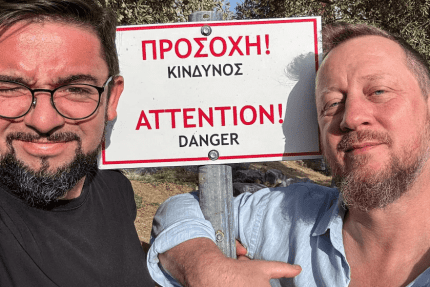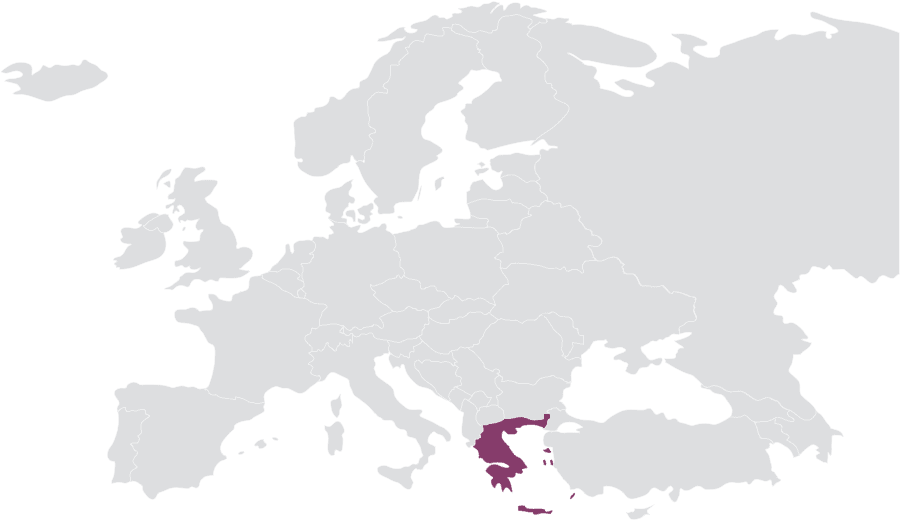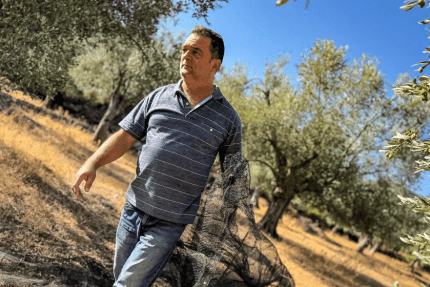The unpaved road stretches for kilometres and winds down the mountainous slopes. It cuts through bone-dry pine forests. From here to Mitylena, the island’s capital, it is more than 40 kilometres. To any sign of civilisation – more than 10. Out of sight, out of mind of all outsiders, a gigantic new refugee camp is being built in Lesbos.
The Closed Controlled Access Centre (CCAC) is an enclosed centre with controlled access, deliberately located in an area that is difficult to access. No one is supposed to go out of there. Just sit and wait for someone to finally decide their fate. The camp accommodates 5,000 refugees; it was built with EU funds, which it depleted by €76 million (plus VAT). We have done the maths: if this money was spent on helping refugees, getting them into work, creating jobs, there would be more than PLN 100,000 per head for everyone currently in Lesbos.
The new camp in Lesbos is one of five new refugee centres funded by the European Union. In addition to Lesbos, similar centres have already been set up on Chios, Kos, Leros and Samos. Funding for them, amounting to more than €260 million, was promised by the EU to Greece a few days after the Moria camp fire in 2020. According to the pact, the new camps were supposed to provide ‘health’ and ‘security’ for the refugees housed in them. In practice, however, ghettos with prison-like conditions have been created, surrounded by barbed wire, concrete walls and round-the-clock surveillance.
Refugees cannot live in prison-like places. People seeking refuge need protection and have the right to decent accommodation. They need to have contact with society, access to legal advice, a hospital, everything they need after long months of wandering.
EU money, however, went down the drain. Construction has stopped. Not because of inhumane conditions, but because of the trees. A few days ago, the Supreme Administrative Court revoked the building permit due to the lack of an environmental impact assessment for the project. There is also no court approval for the felling of 8.5 hectares of pine trees in the heart of the protected, largest forest in the Aegean basin. However, if they are not cut down, the access road to the camp will not be built.
Meanwhile, experts from the University of Athens have sounded the alarm for a very different reason. The site where the new camp has been erected in Lesbos is a high fire risk zone. Given the extreme weather conditions that cause gigantic fires in Greece, the decision to resettle 5,000 refugees there is to expose them to direct risk to their lives. In the event of a fire outbreak, the terrain and density of the trees would make it completely impossible to evacuate people.
What do the authorities say about this? They say everything is fine. They are aware. They will ensure safety. They are not impressed by the court’s decision. They still maintain that the camp will be built because, after all, there is already the largest landfill site on the island right next door, so why not.





